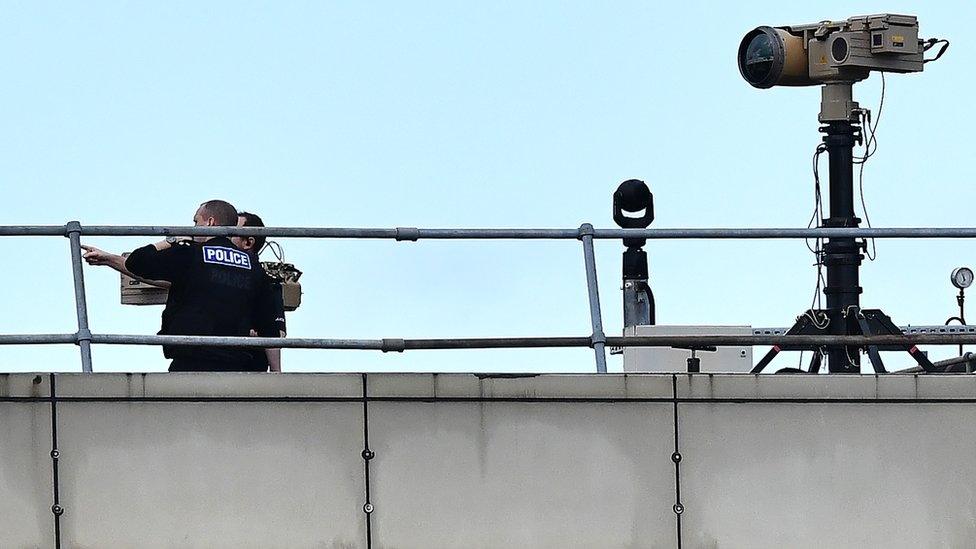Airport drone disruption: All major UK airports to have 'military-grade' protection
- Published
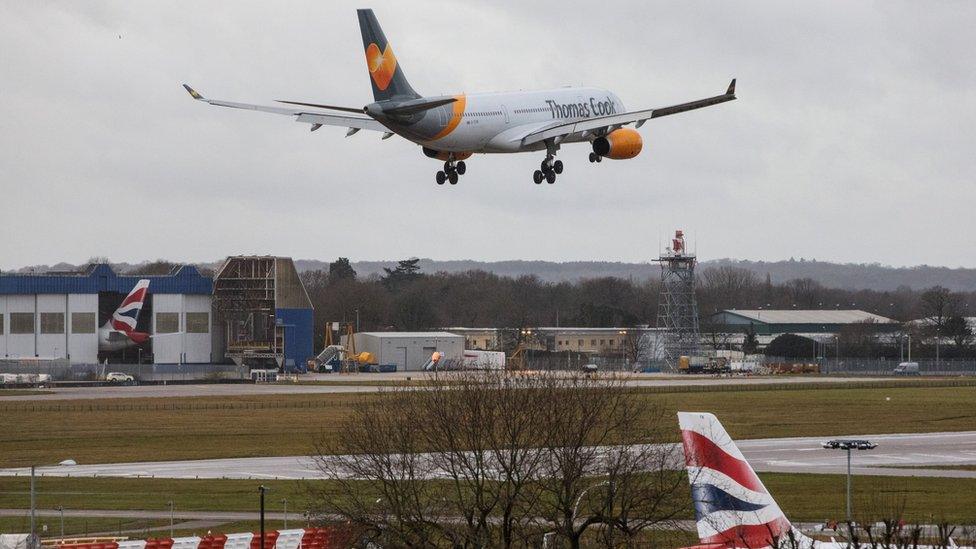
All major UK airports now have or will soon have military grade anti-drone equipment, the government says.
It comes after the military were called in to help when drone sightings caused delays for around an hour at Heathrow on Tuesday.
And drone sightings at Gatwick caused major disruption affecting 140,000 passengers before Christmas.
Earlier, the defence secretary said it would "not be right" to ask the RAF to respond to similar incidents in future.
Gavin Williamson said all commercial airports needed to invest in anti-drone technology.
Ministers are also working on ensuring the technology is installed at other critical infrastructure such as prisons, power stations and military sites.
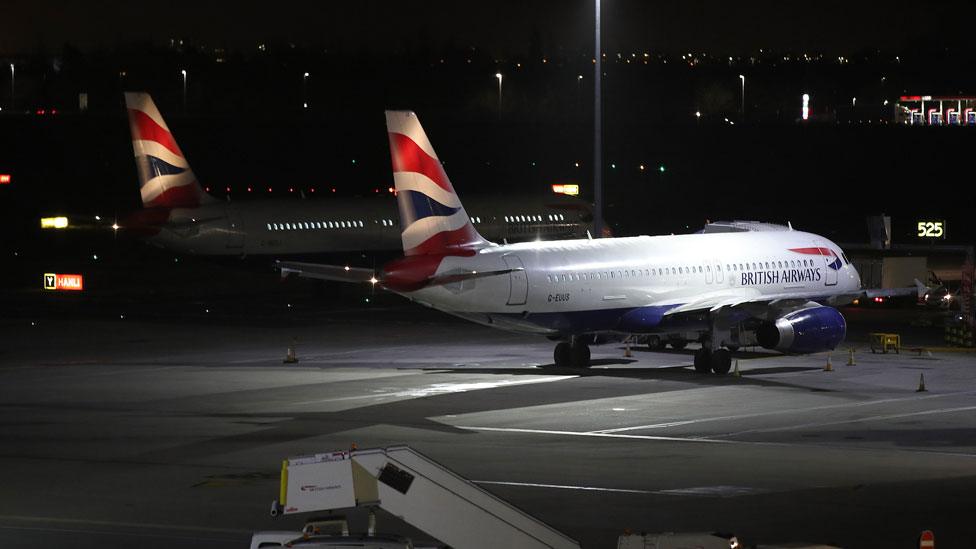
British Airways aeroplanes were among those to be grounded at Heathrow on Tuesday night.
Official figures show 120 near misses between drones and aircraft were reported over the last year - a twenty-fold increase on the six incidents recorded in 2014.
Speaking on a visit to RAF Marham, Norfolk, Mr Williamson said: "I think that everyone would be expecting all airports to be having this detection, and deterrence effect also, at all commercial airports in the future.
"It is a logical thing for them to be investing [in]."
Military-grade anti-drone equipment has already been installed at airports across the UK.
A system which can detect, track and ground the devices has been installed on the roof of Gatwick's South Terminal following last month's chaos.
Gatwick said last week that it had spent £5m to prevent future attacks. Heathrow also confirmed it would be buying systems to guard against drones.
And it was announced this week that police would be given new powers to tackle the illegal use of drones.
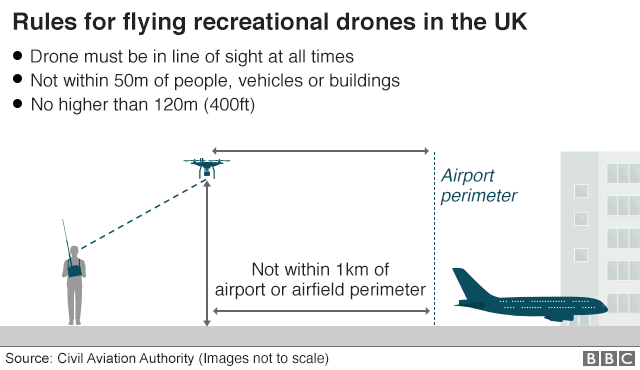
The Heathrow and Gatwick incidents raised questions about how UK airports deal with drones - an issue which has been raised repeatedly by the aviation industry.

RAF's F-35 fighter jets are 'ready to go'
Defence Minister Gavin Williamson issued today's warning shortly after declaring Britain's first nine F-35B Lightning II fighter jets ready for combat.
The US-built jets, which cost £92m each, are expected to revive Britain's ability to launch sea-borne operations from aircraft carriers.
The planes can reach speeds of 1,200mph and can land vertically, similar to the Harrier jump jets.
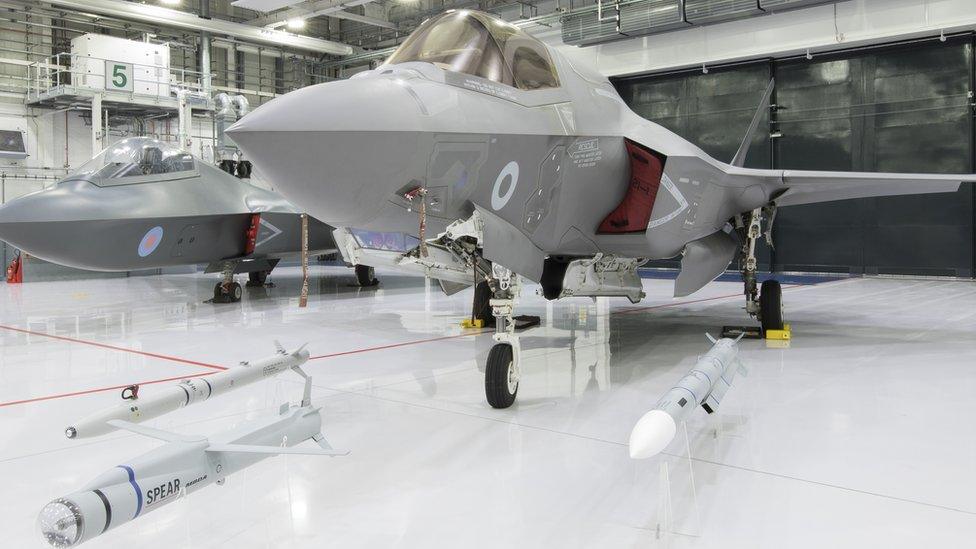
A combat-ready F-35B, seen here with Spear, Asraam and Meteor missiles in the foreground.
Mr Williamson said: "Our nation is moving into a new era outside the EU, and our huge achievements in air capability make our commitment to a role on the world stage clear to both our allies and our enemies.
"The incredible F-35 jets are ready for operations, a transformed Typhoon has the power to dominate the skies into the 2040s and we continue to look even further into an ambitious future."
- Published21 December 2018
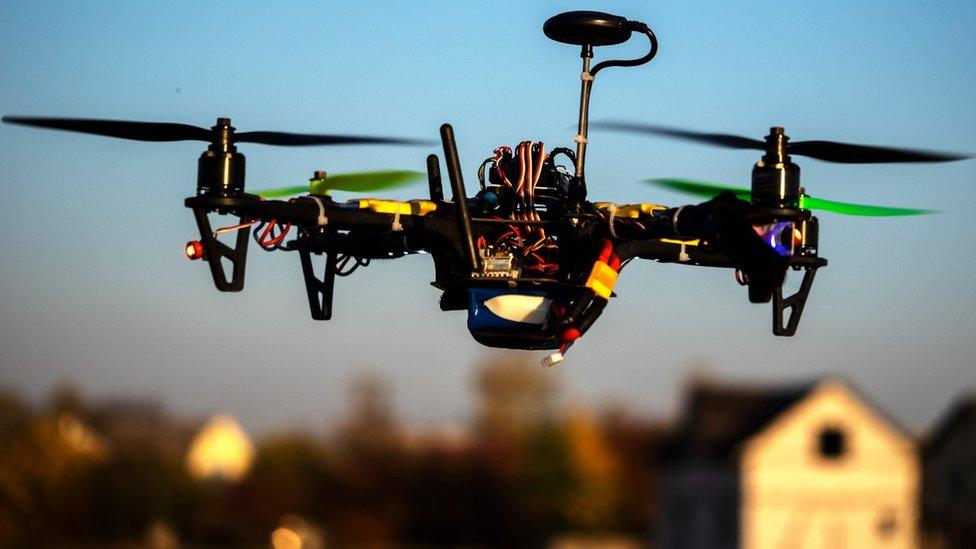
- Published7 January 2019
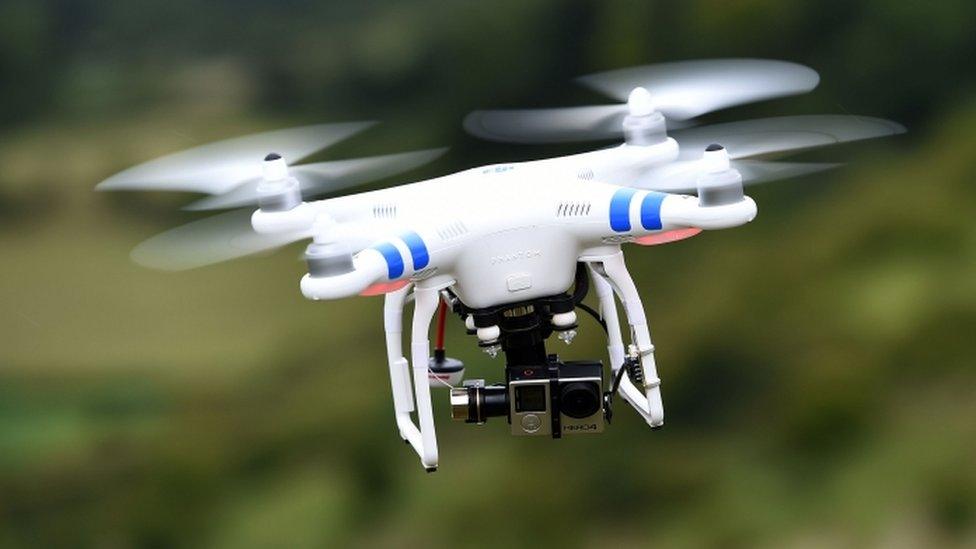
- Published4 January 2019
